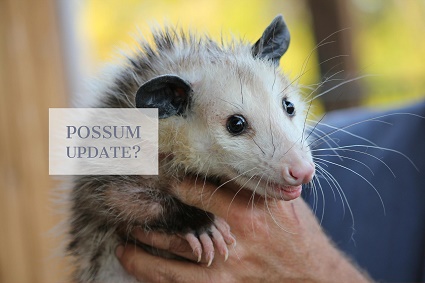Your cart is currently empty!

Google’s Possum Update
Pigeons, penguins, and pandas, and now Google’s Possum update keeps the alliteration going. The Possum update is a change in local rankings — but the name comes from the SEO community. Google’s Webmaster Central blog has not one word to say about Possum.
Google makes changes to its algorithm all the time, and only announces really big changes. For example, it has just announced that Google has added Penguin to its core algorithm. Penguin was rolled out in 2012. Will Google embrace Possum and make an announcement? We don’t know. But many SEOs believe that there has been a big change in the algorithm.
First point, duplicate content
If you have five doctors in practice at one address, they could each have an office listing, so they could theoretically take up the entire page of search results. Ditto for a gym that also contains a juice bar, massage, and tanning. Or a hair salon with multiple independent operators. But people searching for local options want actual options, not a directory for a single address.
Plus, it’s easy to manipulate addresses to get multiple listings that may not be deserved, and Google never likes that. So you can expect to see just one of the entities in local search now.
It has already been hard for businesses that share a phone to get individual results on the search engine results page, but now sharing an address will also affect results. If you see this with your website, make sure that each listing has a suite number or other distinguishing element. Separate phone numbers can also help.
If you share an address, a phone number, and a web domain with another business, admit to yourself that you are actually the same business and leverage the size of your combined practice or company.
It’s no longer all about the name (of the town).
Joy Hawkins ran some experiments and found that companies outside the city limits are doing better than they used to for searches focusing on the name of a town. It has generally been harder for a gym in the suburbs of Fayetteville to rank for “gym in Fayetteville” than for gyms in town to do so. Possum changes this, and Hawkins has seen rises in rankings for suburban clients.
We’re not seeing this change, possibly because our town is too small to have proper suburbs.
But this looks like the death knell for the advantage of having the name of the town in the name of company. This advantage has been shrinking for a while, but now we’re not seeing it at all.
If you have been in operation in your town long enough to be called “Yourtown Gym” or “Yourtown Dentist,” you are very likely to have the advantage of an old domain and a strong local reputation. This fact could look like an advantage of having the name of the town in your title, so make an effort to distinguish if you’re checking on this.
Location, location, location
We provide blogging, social media, and webmaster services for a group of doctors with seven locations in one county. When I search for the name of their company, local search offers the clinics in distance order: the closest one first, the other clinic in my town, the one in the closest neighboring town, and so forth.

The closest clinic is not the first one that comes up in organic search above or below the local three pack, but if I choose “More places,” I continue to see the options in order of distance from my computer.
We’ve seen this with many clients for some time now. Google’s Pigeon update made the physical location of the searcher of primary importance. We’ve found in our experiments that this is even more true with mobile devices than with desktops (where we see an effect from the number of visits the subject has made to the website).
It is possible that just as people in larger cities are seeing the suburban change, we saw this sooner than they did because we have fewer local competitors in any given space. Having many options nearby could mask this effect, or perhaps Google is able to make more granular distinctions now which don’t make as much difference in a less crowded community.
Word order effects?
We’re also seeing claims that searches for “hair stylist Atlanta” and “Atlanta hair stylist” will now turn up different local results. We haven’t been able to get this effect, either for Atlanta or in our own local search results.
In cities large enough to have many similar businesses within a few miles, it might make sense to distinguish between similar searches. We can’t get this even for coffee shops and churches, which seem like the most saturated markets in our town. Changing word order does not change our results.
Time to take action?
We haven’t seen all these changes recently. Some we have seen for a long time, some we haven’t seen at all. Google hasn’t confirmed the existence of a Possum update. So this may be an urban myth.
Suppose it’s true. What would you need to do for your website?
- Make sure that Google knows your address as exactly as possible. This has always been our recommendation for local search.
- Mix up the order of the words in your keyword phrases. No harm in that, though we’d rather work on more different keywords than slight variations of the same phrase.
- Readjust your expectations for your rankings in local search… in some cases. This isn’t much of an action, is it?
We’re not going to make adjustments for Possum at this point.
by
Tags:

Leave a Reply